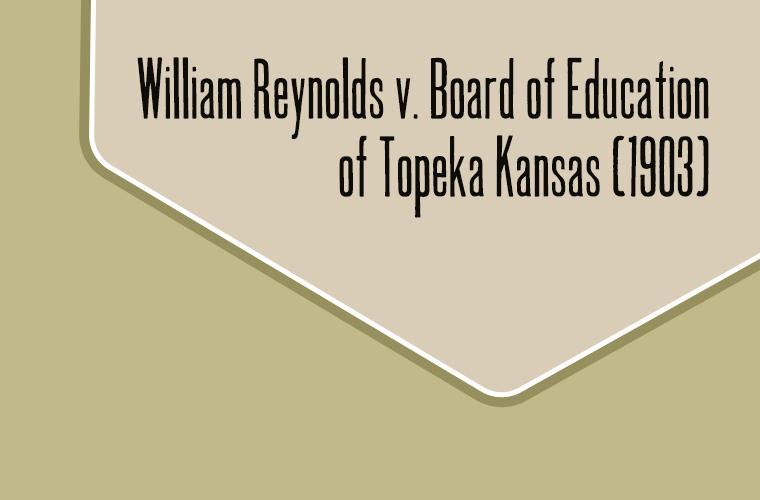In 1903, William Reynolds filed a lawsuit against the Board of Education of Topeka, Kansas, marking a significant moment in the history of education and civil rights in the United States. The case brought to light the issue of racial segregation in public schools and set the stage for the landmark Supreme Court case, Brown v. Board of Education, which ultimately led to the desegregation of public schools.
At the heart of Reynolds v. Board of Education of Topeka Kansas was the question of whether the Board of Education had the right to segregate students based on race. William Reynolds, an African American parent, argued that the segregation of schools violated the Fourteenth Amendment of the United States Constitution, which guarantees equal protection under the law. Reynolds contended that the separate but equal doctrine, which allowed for racially segregated facilities as long as they were deemed equal, was inherently discriminatory and unconstitutional.
The case garnered national attention and sparked a heated debate about the state of race relations in America. Advocates for desegregation argued that separate facilities could never truly be equal, as they inherently perpetuated inequality and discrimination. On the other hand, proponents of segregation defended the practice as a way to maintain social order and uphold the status quo.
After a lengthy legal battle, the case reached the Supreme Court, where it was ultimately decided in favor of William Reynolds. The Court ruled that the segregation of public schools based on race was indeed a violation of the Fourteenth Amendment and therefore unconstitutional. This decision set a powerful precedent and paved the way for future challenges to racial segregation in all areas of public life.
The impact of Reynolds v. Board of Education of Topeka Kansas was profound and far-reaching. It laid the groundwork for the historic Brown v. Board of Education case, which would ultimately lead to the desegregation of public schools across the country. The legal victory in Reynolds v. Board of Education marked a significant step forward in the fight for civil rights and equality, and it remains a pivotal moment in American history.
In conclusion, William Reynolds’ lawsuit against the Board of Education of Topeka, Kansas, in 1903 was a pivotal moment in the struggle for civil rights and equality in the United States. The case brought national attention to the issue of racial segregation in public schools and set a powerful precedent for future challenges to discriminatory practices. Reynolds v. Board of Education of Topeka Kansas laid the groundwork for the eventual desegregation of public schools and remains a landmark case in American legal history.

